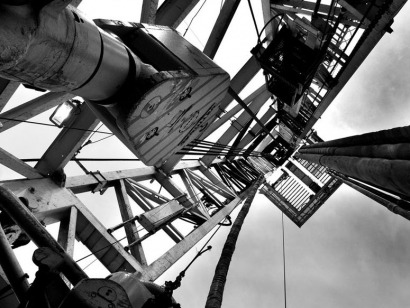
This will enable ETH Zurich to fulfill its aim of launching an research to take a closer look at the promise of deep geothermal energy.
Deep geothermal energy is regarded as a promising technology that could allow hitherto unused heat energy from the ground to be tapped.
The decision to create two chairs in deep geothermal energy underlines ETH Zurich’s desire to play an active part in shaping Switzerland’s future energy landscape. The donation of 10 million Swiss francs to the ETH Zurich Foundation by the Werner Siemens Foundation will now enable ETH Zurich to take firm steps to press ahead with its geothermal energy strategy.
“The very generous donation from the Werner Siemens Foundation will strengthen ETH Zurich’s work on deep geothermal energy at just the right time," said Ralph Eichler, President of ETH Zurich. "We must now make every effort to tackle the fundamental research for this form of geothermal energy quickly if we want it to deliver tangible benefits in ten to twenty years’ time.”
The appointment process for the new chair in geo-energy has already begun with the advertisement of the vacancy. The chair will be based in the Department of Earth Sciences.
Deep geothermal energy exploits the high temperatures in crystalline bedrocks four to six kilometres below the earth’s surface. An artificially generated water cycle brings the heat to the surface of the earth to produce electricity and heat.
The process involves drilling down into this layer of rock and fissuring it under high pressure to enable the water that is fed down into the rock to flow through it and thus be heated up to 200°C. Water already present in the rock can also be used. The heated water is carried back to the surface through a second borehole and is used for the continuous generation of electricity and to produce heat. This technology is still in its infancy in Switzerland and internationally.
A deep geothermal borehole in the city of Basel had to be abandoned due to earthquakes. An experiment is currently under way near St. Gallen and in Lavey-les-Bains. Geothermal heat offers huge potential. One significant advantage of this form of energy is that it is regular and is also controllable.
More than 2,500 gigawatt hours (GWh) of geothermal energy were extracted in Switzerland in 2011, with over three-quarters of this originating from facilities using geothermal heat probes. Due to the energy’s high potential, experts expect around a dozen deep geothermal power stations to go online by 2030, producing 800 GWh per year of electricity.
The research and development of geothermal energy is considered a key component of Switzerland’s goal to dramatically increase the amount of electricity in the country comes from renewable sources.
The cantons and the business world also have a vital interest in this form of energy generation.
“We are lighting the touch paper for future technological breakthroughs in an area that could have central importance for the Swiss economy,” said Ludwig Scheidegger, Chairman of the Board of Trustees, explaining the reasons behind the Werner Siemens Foundation’s decision to fund this chair in particular.
While the Swiss government see incredible potential in deep geothermal, significant challenges must be overcome before it becomes a regular part of the country's energy mix. Research is needed, among other things, into the geology of the bedrock from which the heat is to be extracted. At the same time, technical problems must also be solved, such as developing suitable drilling techniques and the artificial fissuring of the bedrock.
Ralph Eichler believes that it will take a concerted effort by the government agencies involved and by researchers and the business world in order to raise up the energy hoard slumbering deep within the earth. He says that ETH Zurich will play its part in this by supplying the fundamental knowledge, innovative processes and skilled personnel that will be needed in the future to construct and operate facilities of this kind.
For additional information:

